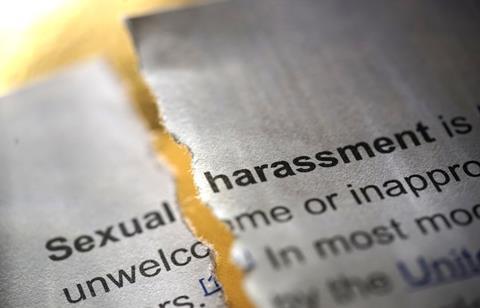
The Women and Equalities Committee has recommended that the government introduce a new duty on employers to help prevent sexual harassment in the workplace.
The recommendation forms part of the Sexual harassment in the workplace report, and corresponding recommendations, published today (Wednesday 25 July 2018). These are based on the results of a six-month inquiry, which explored sexual harassment in the workplace and the responsibilities of government, regulators and employers in tackling it.
The report found that employers' internal procedures around sexual harassment grievances, as well as the employment tribunal process, typically do not work well enough, while non-disclosure agreements have been used unfairly by some employers and legal professionals to silence sexual harassment victims. The committee concluded that although sexual harassment at work is widespread, little has been done to tackle unlawful behaviour, despite legal obligations.
The committee recommends the introduction of a statutory code of practice that outlines the steps employers can take to prevent sexual harassment. It also proposes that interns, volunteers and those harassed by third parties have access to the same legal protections and remedies as employees.
The report suggests that regulators set out the enforcement actions they will take to combat sexual harassment, and make it clear to those they regulate that sexual harassment is a breach of professional standards and a reportable offence with sanctions. The committee further proposes that the number of barriers in taking forward employment tribunal cases should be reduced, for example by extending the time limit for submitting a claim, introducing punitive damages for employers and reducing the cost risks for employees.
The committee recommends that non-disclosure agreements should be required to use plain English confidentiality clauses, which set out the meaning, limit and effect, and make it an offence to misuse such a clause, as well as extending whistleblowing protections, so that disclosures to the police and regulators such as the Equality and Human Rights Commission are protected.
Maria Miller MP, chair of the Women and Equalities Committee, said: "It is utterly shameful that in 2018, unwanted sexual comments, touching, groping and assault are seen as an everyday occurrence and part of the culture in many workplaces.
"Government, regulators and employers have been dodging their responsibilities for far too long. There is currently little incentive for employers to take robust action. In contrast, there is considerable focus on other corporate governance issues, like protecting people's personal data and preventing money laundering, with stringent requirements on employers and businesses to meet their responsibilities. It's time to put the same emphasis on tackling sexual harassment.
"The effects of sexual harassment can be traumatic and devastating, and this is reinforced by the personal evidence we received. The lack of appropriate support for victims within the workplace cannot continue. The burden falls unacceptably on the individual to hold harassers and employers to account when they will already hesitate to do so due to fear of victimisation.
"The current system is inadequate; the tribunal system must provide an effective remedy for employees. [Non-disclosure agreements] have their place in settling complaints, but they must not be used to prevent or dissuade victims from reporting incidents as is clearly the case now. We expect proper regulation of [non-disclosure agreements] and that any unethical practices lead to strong and appropriate sanctions."











